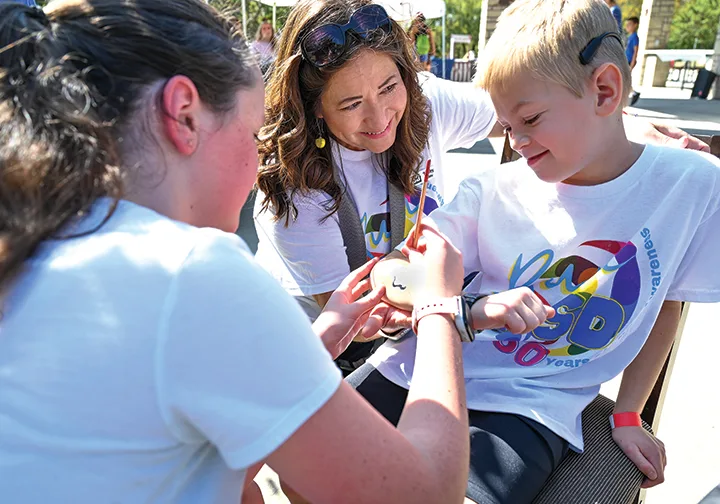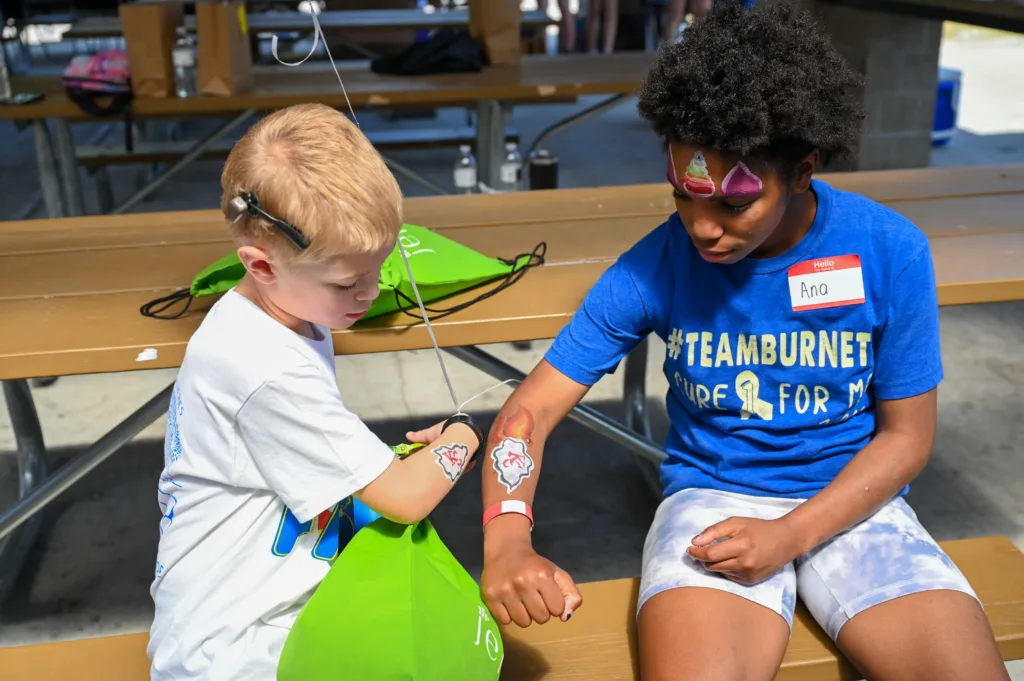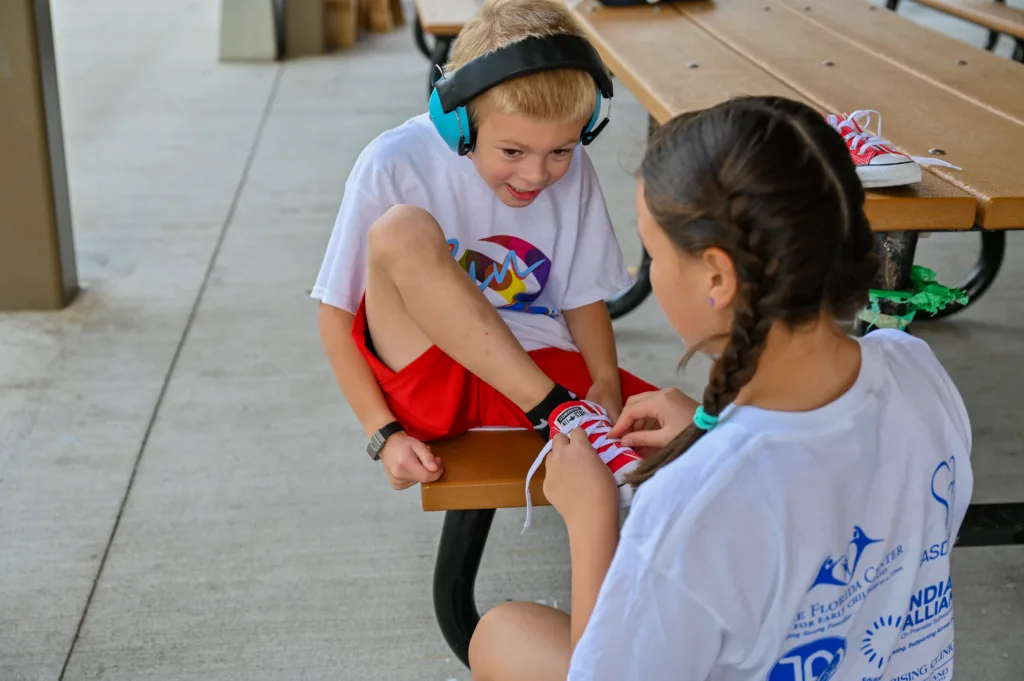
by Dean Backes
Special to The Leaven
OVERLAND PARK — At the start of a new year, it’s not uncommon for folks to take stock of the year just past and then search for ways to better give back to their communities going forward.
Some Americans turn to their checkbooks as a way to help the less fortunate and the parishes they belong to. Others assist their neighbors through the skill set and talents they possess.
While both practices are critical in lending a hand to our neighbors, adoption may be the most selfless of the three. Not only do these admirable Americans give of their time and money, they truly sacrifice of themselves so these children can have a new home.
Daniel and Kathy White of Holy Spirit Parish in Overland Park and Quentin and Kristin McArthur of Curé of Ars Parish in Leawood have been raising adopted sons for nearly five and seven years, respectively. They’ve also been guiding Zachary White and Del McArthur through a diagnosis of fetal alcohol spectrum disorders (FASDs).
Not to be confused with fetal alcohol syndrome (FAS), FASDs is an umbrella term for a wide range of effects — including FAS — that can occur in an individual who was exposed to alcohol before birth.
“When Zachary came into our lives, he was charming,” explained Kathy White. “He still is. And he crept into our hearts.”

Dan and Kathy started out just helping his birth family with different needs they had.
“And then we began praying and discerning if God was calling us to adoption,” said Kathy.
An already busy family of seven, the Whites hadn’t thought much about being called to foster or adopt.
“Were we open to life? Absolutely,” said Kathy. “We just didn’t know this is what being open to life meant.”
But having five children already, it was clear to the Whites that in addition to young Zachary’s natural sweetness and charm, there were some obvious concerning behaviors.
“He was significantly delayed,” said Kathy. “Most three-year-olds have a vocabulary of around 200 words and can speak in phrases and short sentences. He could only say a handful of words —and only two words together.”
They also noticed he walked recklessly, as if he were tipsy. They later learned he has a movement disorder and vestibular disorder, along with multiple other comorbidities.
Despite all of that, said Kathy, “Zachary is a survivor. He is doing great!
“The most difficult thing is learning how to parent and educate him differently because he has a neurodiversity.”
He, like most individuals diagnosed with FASDs, doesn’t respond to traditional parenting strategies. And like most individuals with FASDs, his disability is internal — he looks like everyone else.
The McArthurs had fostered many children before having Del join their family of seven.
“I felt a tug from God to start fostering,” said Kristin McArthur. “My husband wasn’t on board at first. Then, he was.
“We got another son and a brother to love.”

FASDs is a developmental disability, not a mental illness. Behaviors are a symptom of the disability. While it does have lifelong effects, the disorder is manageable when given the appropriate accommodations and support.
Individuals diagnosed with FASDs as kids typically have multiple providers on their care team. They benefit from occupational therapy, physical therapy and speech assistance to address sensory needs.
“Without the correct diagnosis and support, these individuals typically develop adverse outcomes like acting out in school, for example, being the class clown and getting into trouble because they’re not following rules,” Kathy said. “The reality is, those impacted can’t always remember the rules on a day to day basis,” she added. “Or while they can repeat them, they don’t understand what they mean or how they apply them.”
Because FASDs is not widely known or understood, parents like the Whites and McArthurs sometimes find themselves educating the providers: doctors, social workers, educators.
Those diagnosed with FASDs often have memory lapses, inconsistencies with sleep, impulsivity and executive functioning. They are dysmature, which is a significant difference in the child’s development compared to the development of peers.
Confabulation, also a symptom of FASDs, occurs when an FASDs child fills in a memory gap with confused, misinterpreted or distorted information. Some FASDs kids have sensory issues as well.
“They might have a strong reaction to certain smells, tastes or sounds,” Kristin said. “I think most of them have trouble with abstract ideas and things like time and dates and money and math. Money management is really difficult for these kids.”
Individuals with FASDs typically don’t understand sarcasm, or a lot of the idioms Americans use throughout the day. They are very literal. If someone uses the phrase, “raining cats and dogs,” within earshot of a person with FASDs, a puzzled look may precede the sound of a chuckle.
Studies have found that 70% of children diagnosed with FASDs have been in foster care. One in 20 students — or about one in every classroom — is thought to have the malady compared to just one in 700 kids when it comes to Down syndrome.
It is estimated that 60% of people with FASDs have had legal issues. That rate is 30 times higher than the rate of the general population.

Medication is sometimes used to help with symptoms. Behavior and education therapy — as well as parent training and other alternative approaches — are also remedies for people who have been diagnosed with FASDs.
FASDs is two-and-a-half times more prevalent than autism and is often referred to as the invisible disability because adolescents with FASDs tend to look like typical kids. They sound like typical kids. But they are not.
“These kids take a different kind of parenting. So please, don’t judge if you know a parent that is going through this, is sponsoring or adopted a kid, or has a child and he is struggling,” Kristin said. “Don’t be judgey because you don’t know what they’re going through.
“It takes a lot of time. It takes a lot of repetition to teach them something. I want more people to know about this. Hopefully, more will be done to help them. It’s a huge problem that not many people know about.”
While people with FASDs are the No. 1 priority for the Whites and McArthurs and organizations like FASD United, birth mothers are celebrated as well.
“We believe in the birth mom. We champion moms who disclose,” Kathy said. “You are not a bad mother just because you drank while you were pregnant. You are a champion mom because you are doing what you can for your baby. We support you 100 percent.
“If you’re an addict, an alcoholic, it doesn’t matter. You want what’s best for your kid. That’s the most important thing. Birth moms never want to hurt their babies. That’s what we know without a doubt. They don’t do it on purpose.”






